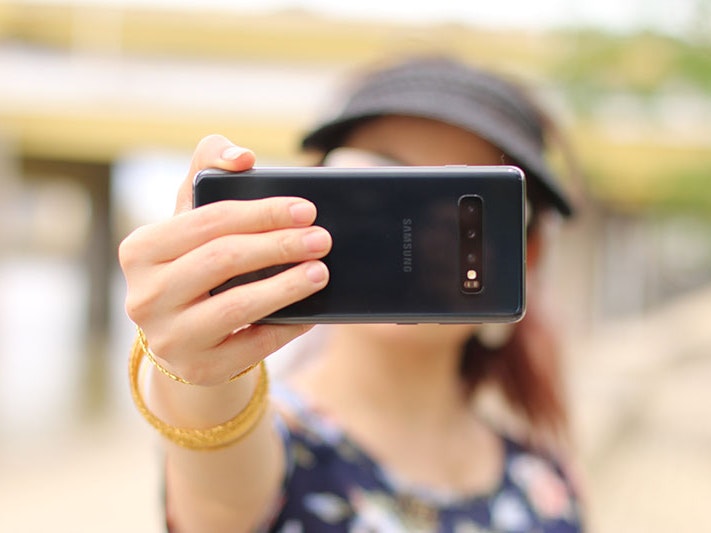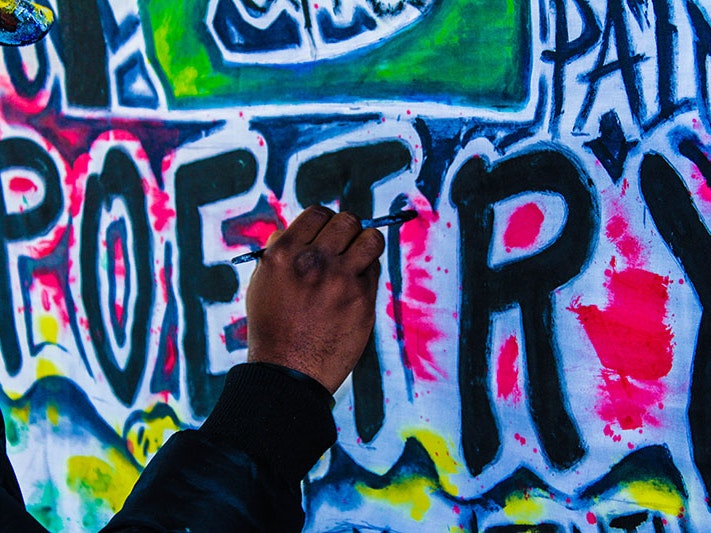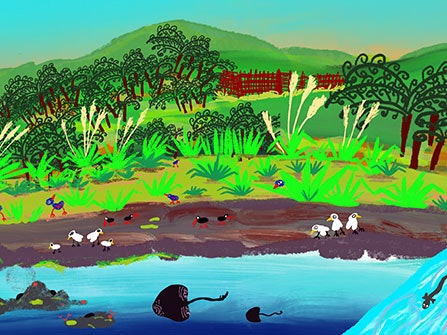
Rich task 1: Me, my selfie, and I
Examine a selfie portrait image and manipulate aspects of adornment to reflect on how identity is communicated.
Free museum entry for New Zealanders and people living in New Zealand
Open every day 10am-6pm
(except Christmas Day)
Free museum entry for New Zealanders and people living in New Zealand
Use both technology and adornment to create fantastical avatar superheroes.
We are looking at the ways in which we represent ourselves in the world, through the creation of personal hero avatars.
Through these activities, learners will:
consider the ways in which costume can communicate identity or character
develop positive selftalk in response to developing an autobiographical hero figure
develop and review the creative process, using digital tools to enable their vision to come to life.
Reihana has portrayed multiple cultures, narratives, and histories during her career and is interested in the ways in which clothing can communicate identity, role, or character. This activity brings this home to the learners’ and their own worlds, creating a hero avatar that reflects their awesomeness.
Hold up – what is an avatar?
In computing, an avatar is a graphical representation of the user’s character or persona.
It can be a 2D image, such as in an icon, or it can be 3D, as found in gaming.
In this activity, learners define themselves as a superhero avatar.
An illustration of an example avatar, outlining the characteristics, brown curly hair, nickname, tool, animal friend, clothing pattern, shoes, and adornment, and what they look like
Begin with a think-pair-share around who their favourite hero figures are in their digital worlds and what they like most about them. Ask learners to think hard about costume and the way this tells us a story about who someone is.
Project this image of a hero avatar, drawn by Te Kahureremoa Taumata. Discuss together the features that have been centred for a complete hero avatar:
hair – celebrate our hair, in all its forms, as it often reflects our ancestral story
adornment – this may be a traditional taonga, a family heirloom, or some jewelry or embellishments that reflect our identity
clothes patterns – what pattern could learners use on the outfit to further describe who they are?
animal friend – what creature of te taiao does each hero avatar have a spiritual connection to? Ask learners to think about the special qualities that animal friends could bring to life adventures
shoes – what are the shoes that are needed for the superhero adventures ahead
tool – what implement is going to help guide learners’ on their life’s journey. This tool might reflect a current hobby (for example, drumsticks) or be an aspirational tool (for example, a passport to explore the world).
Discuss together whether there are any additional features learners might want to add to the hero avatar.
Learners then work on their own to brainstorm the features that they will use to communicate their identity as an avatar, before discussing these with a friend. Ensure that learners remember that they are turning the volume up on their own identity, by using costume, so they can be aspirational. The most successful hero avatars will be ones that reflect authentic identity in an exaggerated way.
If learners are comfortable, they can share brainstorms and tune in to any further ideas their classmates may have for making their avatar even more epic.
There are all sorts of ways in which this direction could evolve. Examples include:
overlaying each learner’s avatar on a photograph of a meaningful landscape or place. In the images below, you can see the avatar has been put at the beach and in front of the wharenui at the artist’s marae
set up groups so that learners can join their avatars together to create crews. They might like to name their crew, and perhaps think about the ways their tools and skills complement each other
learners may have explored Reihana’s Digital Marae portraits in the Explore stage. The class may want to use a similar process to draw avatars of gods, deities, or fabled figures who are important to them, their whanau, or family
learners could write bio statements to be exhibited alongside their avatar image, explaining the choices that were made in the development of their superhero avatar.
What feelings arise when you identify what makes you uniquely you?
In what ways can costume and adornment help us to define identity?

Examine a selfie portrait image and manipulate aspects of adornment to reflect on how identity is communicated.

Respond to art through poetry, collaboration, and performance.

Inspire others with what you have done! Email us with your learning so we can celebrate and share your awesome mahi!